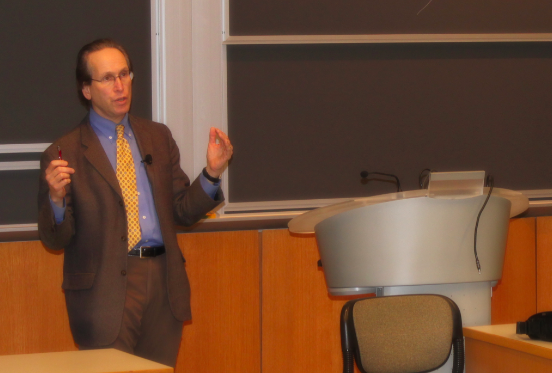
PPR seminar speaker argues that financial regulation cannot eliminate systemic risk.
Regulation of the financial sector can never fully prevent the triggering of another systemic shock to the financial system like the one that led to the economic crisis of 2008. At least, that is the conclusion presented by Professor Steven Schwarcz of Duke University at a recent risk regulation seminar organized by the Penn Program on Regulation.
Schwarcz asserted that regulatory responses, such as the Dodd-Frank Act, can at best only partially address various market failures in the current financial system. Schwarcz identified two such failures which contribute to systemic risk: the information challenges created by the complexity of financial markets, and the misalignment of incentives facing firms to heed the risks their decisions impose on other market actors.
Schwarcz argued that it is doubtful that regulation can fully address all the possible triggers of a systemic financial crisis. He also questioned whether it can fully prevent the transmission of risks from one failed firm to another.
A better approach, he argued, would be for regulation to ensure that firms pay a fee that will help them internalize some of the external risks of their financial behavior. The approach he favored would require financial firms to pay into a private “systemic risk fund” that could be tapped into in the event of a large financial failure, thereby both better aligning market incentives as well as protecting liquidity in the markets when the next big firm fails.



